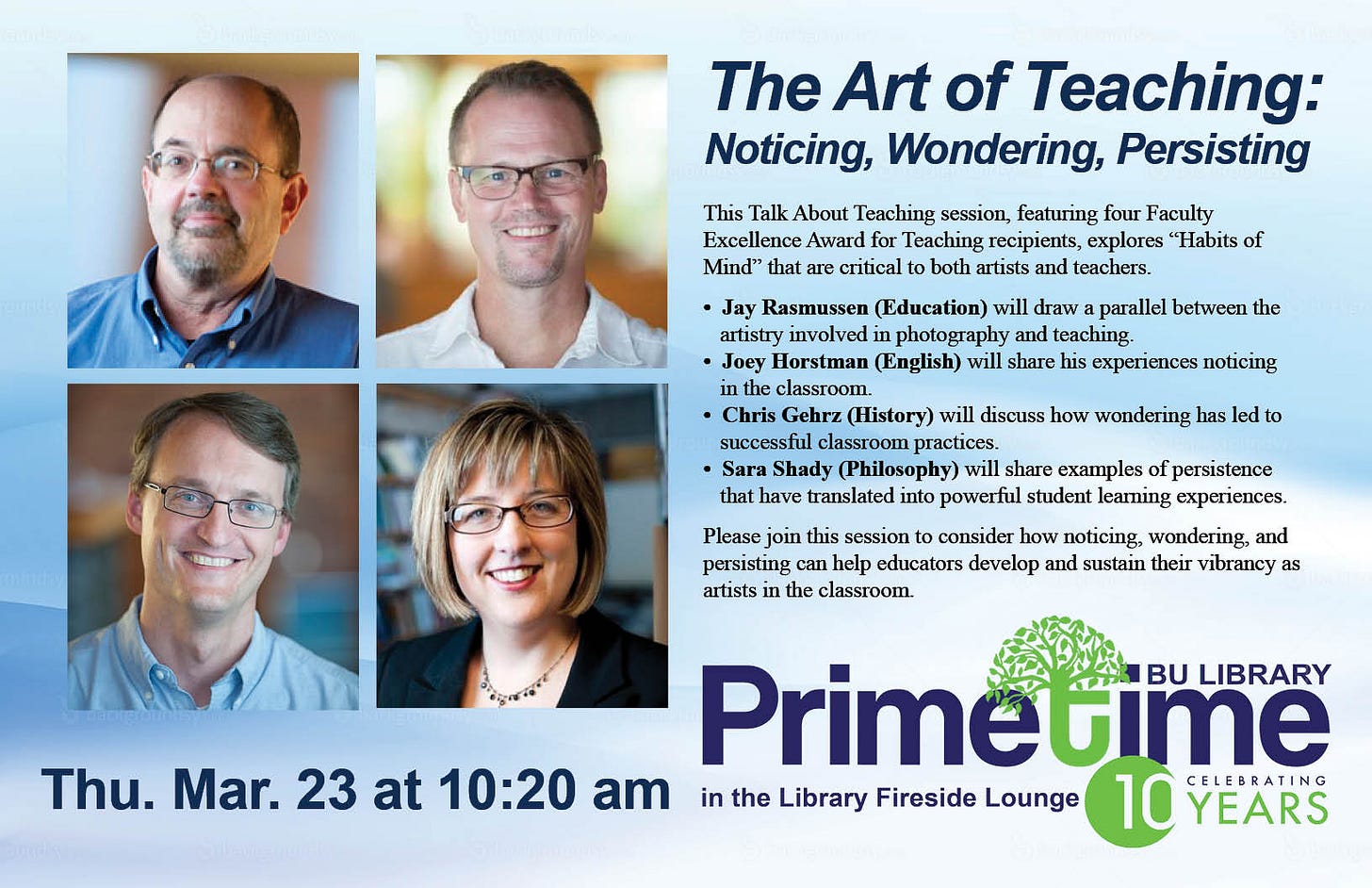How Do I Write History to Which I'm an Eyewitness?
The problems and possibilities of being a participant-observer
In anthropology and other social sciences, it’s long been common for scholars to engage in “participant observation,” intentionally immersing themselves in the same communities they’re studying.
That’s not normally an option for historians. Even those of us who focus on the relatively recent past are typically examining it at a distance. Unless we’re conducting oral history interviews, we’re using evidence produced by others to understand people we don’t know and interpret events we didn’t experience. In my last project, for example, it felt strange even to exchange emails with Charles Lindbergh’s youngest daughter. Though I was glad for her insights, it was hard enough to wrestle with her father’s legacy in the solitude of the archive, let alone when the space between her past and my present collapsed.
But in my career, there’s been one big exception to that rule: I’ve periodically written institutional histories of my own university.

Even there, I’ve tried to keep things at a remove from my own experience. I first examined Bethel’s history because I wanted to understand its religious heritage, mostly via studying the life and thought of Carl Lundquist, who ended his long presidency when I was just seven years old. When we researched and wrote Bethel at War ten years ago, I stayed in the comfortably far-off time of the two world wars, while my student, Fletcher Warren, got to cover the post-9/11 era that was underway as I arrived at Bethel (2003).
But with my current project — a women’s history of Bethel — it’s inevitable that history and memory will start to overlap. After all, I can hardly leave out the last twenty-two years’ worth of Bethel’s history.
So while it’s not like I’ve chosen to embed myself in that community for the purposes of studying it, I do find myself facing some of the same challenges (and opportunities) as participant-observers. Here are four that I’ve thought about already…
Keep reading with a 7-day free trial
Subscribe to The Pietist Schoolman to keep reading this post and get 7 days of free access to the full post archives.



